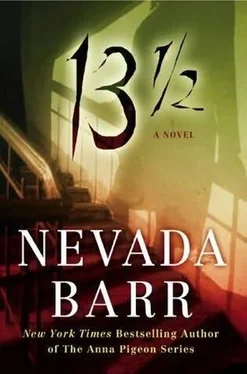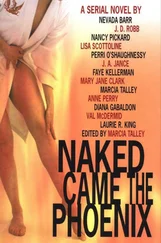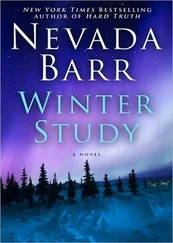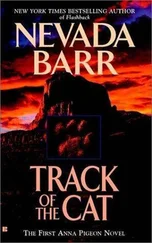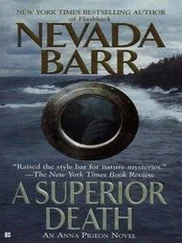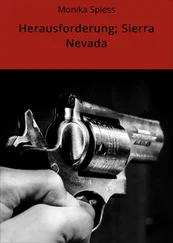No one listened harder than he did. Mrs. Eisenhart had told him the story when she’d rehearsed him for the trial-it wasn’t at all like on television; the lawyers were supposed to tell each other what they were going to say and do and not surprise the other guy; but it was totally different hearing it from his brother. When Rich said it, Dylan finally believed. Until then he thought he didn’t remember it because it didn’t happen.
It happened. This hit him like the axe had-a slam into his head that scrambled his brain. Mrs. Eisenhart kicked him again. She didn’t like him any more than anybody else did.
It had happened. He’d gotten hold of his dad’s axe, and it had happened.
He stared down at the table he and his lawyer were sitting behind. It started to spin and tip like the deck of a boat in a windstorm. Dylan grabbed one edge to keep from smashing his face against the tossing wood surface. With his other hand he took hold of the seat of his chair lest he be pitched onto the floor.
“I tried to kill my brother with Daddy’s axe,” he whispered. This time Mrs. Eisenhart’s kick hurt. He guessed he hadn’t spoken loud enough for anyone else to hear because nobody was looking at him. The words hadn’t been a confession; he’d said them to see if it would make him remember. Because he didn’t. He didn’t remember a thing. Not one thing after his mother had put him to bed.
He’d told them that over and over, but even his own lawyer didn’t believe him. When she got to talk, she argued that people suffering head injuries from accidents often couldn’t remember events that happened immediately before the trauma, that the blow had given Dylan a severe concussion, that he’d been in intensive care, and that, since the incident, he suffered severe headaches.
Nobody felt sorry for him; Dylan didn’t even feel sorry for himself. He’d tried to kill his brother.
Rich was on the stand for over an hour. Talking so long cost him. Lines of pain aged his face. During the whole thing, even when the prosecutor pushed, Rich refused to say anything bad about Dylan. Looking straight at the jury the way Mrs. Eisenhart told Dylan he should if she decided to put him on the stand, Rich told them that Dylan never hurt anybody, didn’t hit or pinch or call other kids names, minded his mother and father, was kind and protective of Lena, their thirty-month-old sister, and brought home injured animals to take care of. The more good he told them, the less the jury believed it. It didn’t even sound like Rich believed it himself.
When the prosecutor was finished, Mrs. Eisenhart didn’t ask Rich a single question. As he was being wheeled out, Rich whispered, “Hang in there, brother,” and gave Dylan a thumbs-up. Dylan didn’t respond; he knew if he so much as nodded he would be six years old again, bawling like a baby.
After Rich testified, things in the courtroom pretty much stopped making sense for Dylan. People came and went without reason. Colors got brighter and brighter until Dylan had to squint to keep them out. Voices were superloud. He could smell things with a dog’s nose: traces of his lawyer’s perfume would choke him; the stink of an old cigarette on somebody behind them would make him sick to his stomach. The walls crept in, making the room smaller.
This whole-world cacophony made him crazy.
Crazier.
One day the prosecutor called Vondra Werner. Dylan pulled hard on the places where his brain was being sucked out of shape so he could pay attention. Vondra and her family had only lived next door six months or so, but she was always around, snooping and trying to talk to Rich. Dylan didn’t think she knew he existed.
“Pink, of course,” Mrs. Eisenhart hissed.
Vondra had on a pink dress. She looked pretty, shy, and nice. Dylan didn’t know why that made his lawyer mad. In a low voice, Vondra told everybody how she and Rich had been together. Except she didn’t say they were necking; she said they were “making love.”
When it was her turn Mrs. Eisenhart made Vondra tell how she was always watching, and following Rich around, and maybe was jealous of his family, and maybe didn’t like Dylan. Dylan thought for a minute the lawyer was going to get Vondra to break down like Perry Mason got confessions at the end of the show, and Vondra’d confess she’d done everything.
Then the lawyer said, “Richard didn’t like you spying; Mrs. Raines didn’t like you watching.” Vondra went white like Casper the Friendly Ghost.
“Richard loves me,” she said. “Mrs. Raines didn’t like him.” She pointed to where Dylan sat. “I overheard her once saying he did things that scared her.”
Panic flooded Dylan, filled his brain until there wasn’t room for anything else. People’s lips would move but he wouldn’t hear anything-or the words made no sense. They could have been speaking Chinese for all he knew.
Except he knew he was supposed to understand.
Terror sharpened, began cutting the inside of his skull; he could feel it knife into the bone. Then he could no longer see, not like he should have been seeing. Lights would grow dimmer or brighter, except they didn’t. Nobody else saw them do it. Walls, especially pale walls, changed color from white, to pink, to grey. Faces mutated subtly to become frightening.
The fifth or sixth day of the trial, Dylan woke up too scared to look into the mirror. His reflection might melt, become monstrous, and his mind would snap, the kind of crazy snap that showed and got people stuck in rubber rooms with canvas coats that tied in the back. Dylan knew he couldn’t be shut up all by himself, all in himself. He had to seem okay.
At least, okay for a monster.
He shut down. He moved hardly at all, then carefully, robotically, nothing flapping or wriggling out of control. Food tasted like sawdust. It stuck in his throat halfway down, a glob of paste. He never looked at his plate. If he looked too long, the noodles or whatever might begin to writhe. He ate to stay alive, and he wasn’t truly committed even to that. The people who made his meals, the people who served them, they all hated him. They could poison the food or, worse, pee or spit on it.
“I don’t know what you think you’re proving with this stoic act you’ve started. You’re not doing yourself any good,” Mrs. Eisenhart said. “People look at you and see indifference. You won’t get the death sentence. I’m a better lawyer than that, and, besides, nobody likes to kill kids, but playing Marble Man is hurting you.”
Dylan knew she was right. He was eleven, not stupid. If he let the jury and the judge see his pain, they might take pity on him. Pity might lead to forgiveness. He couldn’t hope for the good Bible kind where the Prodigal Son is loved, but there might be a version of “forgiveness lite,” where they could tell themselves he was redeemable.
“There’s an old Chinese proverb,” Mrs. Eisenhart said. “You keep on the way you’re going, and eventually you’ll get where you’re headed. You’re a smart boy; you know where that is.”
When he didn’t respond, she dug newspapers out of her briefcase and spread them on the table between them. On the front pages there were photos of him locked in his panic catatonia. “Butcher Boy Shows No Remorse.” That was the headline on the tabloid. The respectable paper was more circumspect but the message was the same.
“Have it your way,” Mrs. Eisenhart said abruptly. Leaving the papers for him to enjoy, she snapped her briefcase shut and stalked away, her high-heeled shoes noisy on the linoleum. At the door she turned back and Dylan wondered if she watched that new show Columbo and was doing that almost-gone-wait-one-more-zinger move. “You’re killing me,” she said. She didn’t even see why that was funny.
Читать дальше
